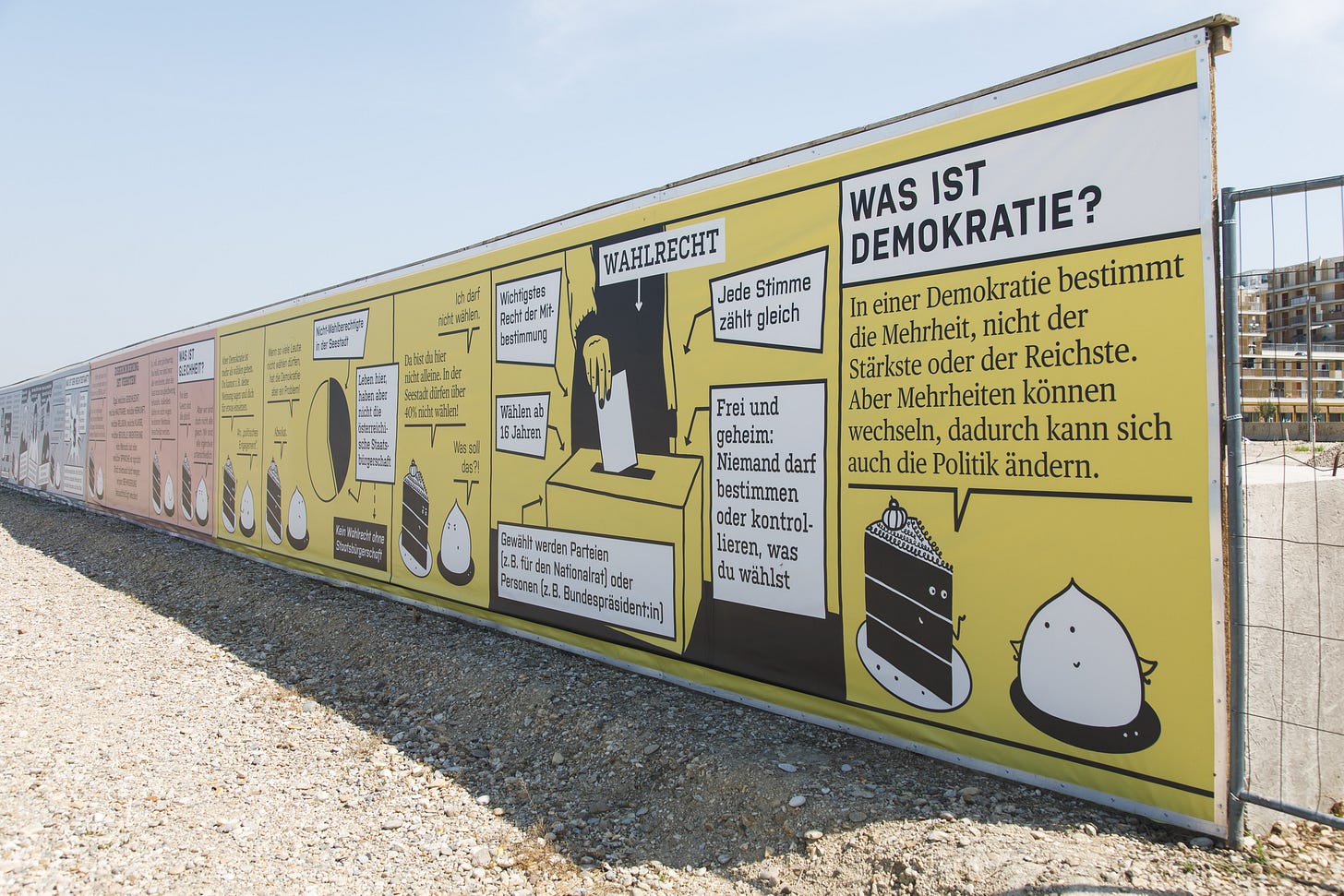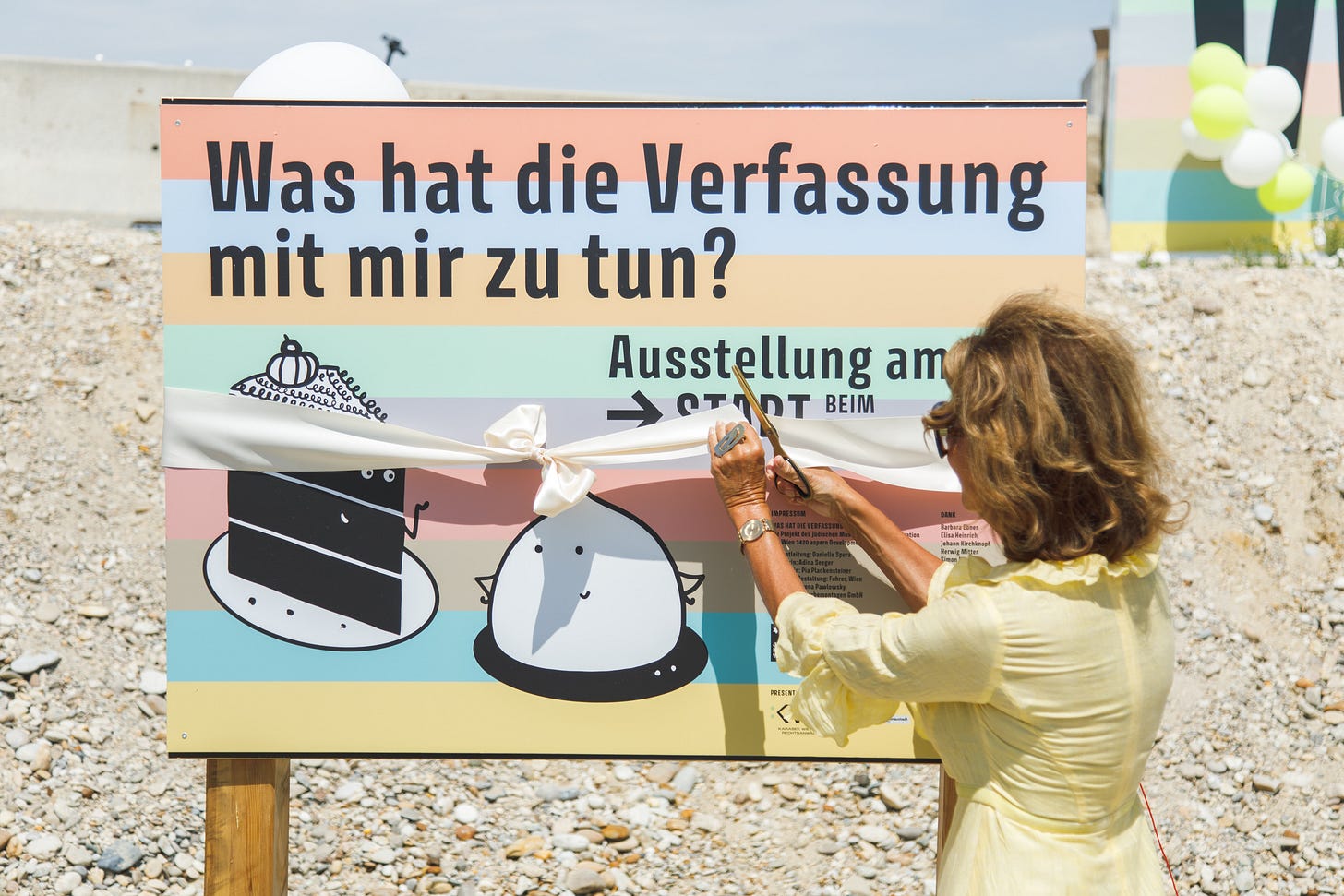Inflation
Austria's government has unveiled a package of measures designed to alleviate inflation's effects; its main beneficiary may be the middle class

Servus!
We return to the topic of inflation. As I wrote to you in last week’s newsletter, rising inflation in Austria is threatening to consume the government. In May, the rate of inflation hit 7.7 percent, up from 7.2 percent in April and the highest level recorded in a single month since April 1976. That inflation in Austria is lower than the European Union (8.8 percent) and Eurozone (8.1 percent) averages is scant consolidation for those dealing with eye-watering increases in the prices of meat (11.3 percent YOY), vegetables (12.5 percent), heating oil (97.8 percent), diesel (56.8 percent), and gas at the pump (42.1 percent).
The factors contributing to rising inflation across Europe are outside of the government’s control and are largely unrelated to domestic policy. Consider the following. The United States has a left-of-center government and is faced with rising inflation. Britain has a conservative-populist government and is faced with rising inflation. Germany has a social democratic-liberal-green government and is faced with—yes—rising inflation. Neither the Russian invasion of Ukraine, the COVID-19 pandemic, nor the global supply chain crisis were the choice nor design of any of these governments—including Austria’s.
What matters, however, is how governments (and central banks) respond to rising inflation and how their policies both impact international economic trends and relieve pressure on people’s pocketbooks at home. Last week, shortly before the publication of the newsletter’s previous edition, after weeks of twiddle and diddle, Austria’s coalition government unveiled a package of measures designed not to counter inflation per se but to alleviate its effects: both in the short-term and looking ahead to 2023, considering Russia’s aggression in Ukraine has no end in sight.
Front-and-center was an increase in the size of the Klimabonus, an annual payment designed to offset the impact of a forthcoming tax on carbon emissions whose implementation has been delayed to the fall. This year, every adult resident in Austria will receive €500 from the climate ministry plus €250 for every child. Much discussed, too, was the decision (as of 2023) to do away with ‘cold progression,’ an income tax trap that sees people move up through fixed tax brackets as their salaries increase with the rate of inflation. Those on low incomes are set to receive an income tax deduction of more than €500 in 2023, while many fixed entitlements will be pegged to the rate of inflation in the future.
By increasing both the Klimabonus and the People’s Party (ÖVP)’s beloved Familienbonus, family tax credit, the main beneficiary of the government’s response to inflation may very well be those who need no help at all. A middle-class family with two children and a combined income of €8,500 per month would receive €2,500 under the government’s plans, for example. Noteworthy here is how the Austrian response differs from the German, whose government has reacted to inflation by cutting taxes on gas (with immediate short-term but limited long-term impact, it must be said) and instituting a new cheap ticket for local and regional public transport. The Austrian government’s emphasis may prove to have been in the wrong place, assisting the ÖVP’s core clientele rather than helping those who need it the most.
Bis bald!
A new outdoor exhibition, “What Does the Constitution Have To Do With Me?” opened Monday in Vienna’s Seestadt neighborhood, one of Europe’s largest urban development projects. Through a dialogue between two characters, the exhibition seeks to engage and enlighten visitors, and in particular the young, as to the relevance of Austria’s constitution to their everyday lives.
Designed by the artist Pia Plankensteiner in collaboration with Vienna’s Jewish Museum and Wien 3420 aspern Development AG, the exhibition—staged along the promenade by the neighborhood’s central lake—was opened by former chancellor Brigitte Bierlein. Those wishing to take a look are advised to take public transport and alight at the U2 subway station Seestadt (exit: Seestadtpromenade).
Thank you for being one of more than 500 subscribers to the Vienna Briefing. If you know someone who might be interested in reading this newsletter, consider sharing it with them today.
The Vienna Briefing is a free newsletter. If you would like to support my work, you can send me a tip via PayPal.
Meriel Schindler, author of The Lost Café Schindler, is being interviewed next week, June 28 at 19:30 CET, for an online event staged by Second Generation Network. The Times of London said of The Lost Café Schindler: “Rigorously researched, [it] successfully weaves together a compelling and at times deeply moving memoir and family history that also chronicles the wider story of the Jews of the Austro-Hungarian Empire... It distinguishes itself through its combination of mystery and reconciliation.”
Wallner Hits The Wall
Vorarlberg governor Markus Wallner (ÖVP) is to step back from his role for a few weeks on doctor’s orders. His time in office has recently been blighted by a statewide scandal involving the Vorarlberg ÖVP, its business lobby, and alleged illegitimate party financing and misuse of taxpayers’ funds.
Comeback for Coal
The Austrian government plans to recommission a coal-fired power plant in Mellach, Styria this winter in the event of a gas-related energy crisis caused by Russia’s invasion of Ukraine. The plant was mothballed in April 2020.
And Finally…
The first orangutan to be born at Schönbrunn Zoo in almost 20 years came into the world at 13:30 on Sunday. The mother is 13-year-old Sari, who arrived in Vienna from Dublin Zoo in 2020, while the father, Vladimir, 48, is the only male in the zoo’s orangutan troop.




